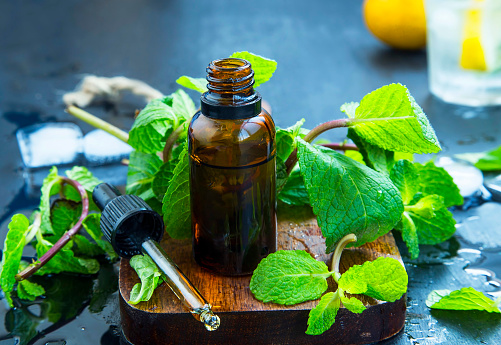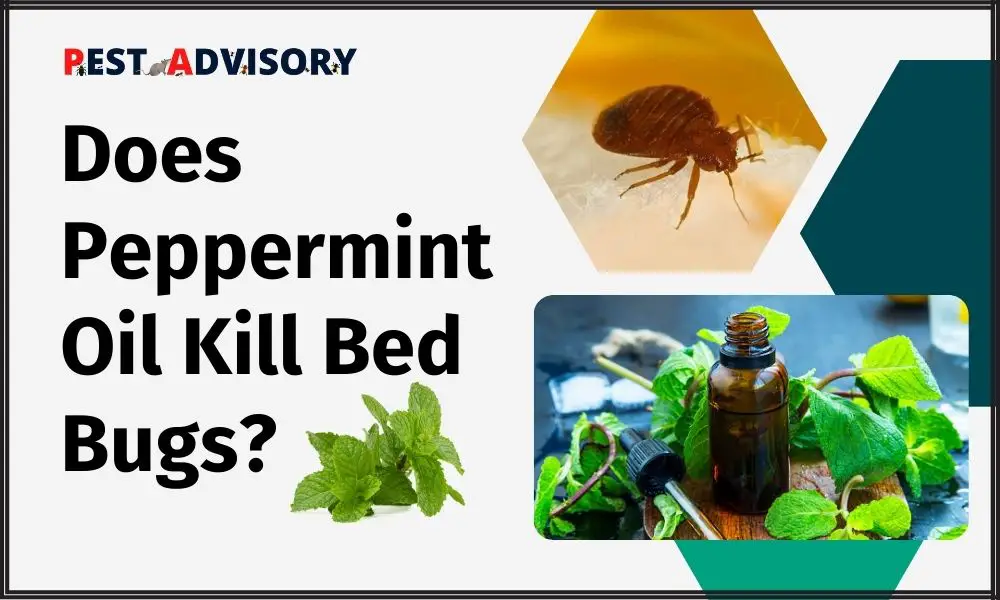It is always stressful to discover creepy crawly critters in your home. That’s right, bedbugs! There are numerous safe and efficient home remedies available to get rid of them.
But is peppermint oil one of these wonder cures?
Is it an effective method to eliminate bed bugs?
Important Note: If you're tired of pests and want a reliable solution, then you should definitely consider seeking help from a professional pest control company. DIY solutions can be effective, but if you're dealing with a significant pest infestation, you don't want to rely solely on DIY methods. Pest control companies typically don't charge huge fees. You can fill out this form to receive free quotes from the top local pest control companies, and compare the quotes and see for yourself. Then, finally, your pest problems will be eliminated for good.
In this article, we will discuss whether peppermint oil kills bed bugs, how we can use it to deal with them, and finally, some safety concerns.
Does Peppermint Oil Work on Bed bugs?
Numerous essential oils are used as DIY pest control techniques due to their incredible antibacterial, antimicrobial, and repellent properties. And yes, peppermint oil is one of them.
Peppermint oil is a popular bed bug repellent because its strong scent repels bed bugs. But does it also kill bed bugs? Yes. Peppermint oil is a good contact insecticide, which means that it will kill pests like bed bugs if it comes in contact with them.
How does Peppermint Oil Affect Bed Bugs?
Peppermint oil contains a compound called menthol which has a strong repelling scent. So when sprayed on an area, it effectively repels bed bugs from the vicinity.
When applied directly to bugs, it produces a burning sensation eventually killing them.
Peppermint oil is also lethal to other insects like cockroaches. The peppermint oil spray remains effective for many hours after application.
How to Use Peppermint Oil for Bed Bugs?
For using peppermint oil as an insecticide, follow these few easy steps:-
a) Take a spray bottle and clean it thoroughly and fill it three-quarters with warm tap water.
b) Add about twenty peppermint oil drops to the water and swirl it well.
c) Now use this homemade spray on any places you have noticed bed bug activity before. You may use it on your furniture, walls, cracks, bedding, etc.
d) If you notice any live bed bug or a bed bug trail, spray the mixture on it directly to kill them.
e) You may also use this spray to kill any other pests like carpenter bees or cockroaches.
f) You can make this spray even more potent by mixing a few drops of other essential oils like tea tree, eucalyptus, lavender, lemongrass, oregano, and thyme.
g) You may also apply essential oils like tea tree, eucalyptus, or lavender on bug bites to soothe them. You should always dilute them with carrier oil or lotion to prevent skin irritation.

Effectiveness of Peppermint Oil against Bed Bugs
Spraying peppermint oil at the foot of your bed at night will guarantee you a good night’s sleep away from bug bites. Peppermint oil is a safe, DIY, effective solution for both, repelling and killing bed bugs.
Peppermint oil keeps your home pest-free, fresh, and scented at the same time. Using peppermint oil regularly can help you to eliminate bed bugs and also prevent them from coming back.
However, bed bugs are stubborn creatures and can be very difficult to get rid of. So it is best to use peppermint oil in combination with other methods to get rid of bed bugs 100%. Let’s discuss some other methods you can use to get rid of bed bugs.
Other Method to Get Rid of Bed Bugs
There are many home remedies you can use in combination with peppermint. Some of them are listed below.
1. Diatomaceous Earth
It is a chemical-free and safer alternative to bed bug insecticides. It contains silica which is a highly abrasive compound and kills bed bugs. You can use DE on cracks, window sills, furniture, etc.
2. Hot Water Wash
In case of an infestation, the first thing you should do is wash all your beddings using hot water and then heat or sun dry them. This will include your mattress, pillows, cases, and clothes.
3. Vacuum
You can vacuum your entire house- couch, bed, carpets, curtains, etc. to collect any bed bugs hiding at these places. Immediately dispose of the vacuum bags away from your home safely to prevent them from coming in again.
4. Steam Cleaning
Heat treatment is the most effective way to eliminate bed bugs. You can steam clean your house steadily and repeat the process once a week to kill bed bugs. Bed bugs cannot tolerate much heat so you can get rid of them immediately.
Safety Concerns
It is important to remember that peppermint oil must be diluted before use, either with a carrier oil or hot water as its high concentration can cause redness and skin allergy.
Some people might also develop an allergy in response to the strong odor of peppermint oil, so it is best used diluted.
Make sure to use only certified and quality products and read the label of any product before using it.
Some essential oils might even be harmful to babies, young children, or pregnant mothers, so it is best kept away from them.
If you have any pre-existing medical conditions or allergies, you should consult your doctor before using any essential oil.
Final Words
We hope you learned a lot about using peppermint oil as an effective treatment against bed bugs. In conclusion, it is a natural, safe, and hassle-free method and we highly recommend you use it in case of a bed bug or any other pest infestation.
We know that these little insects can be back-breaking to get rid of, and that’s why we are here to help you out! We wish you all the best in your bed bug elimination journey!

